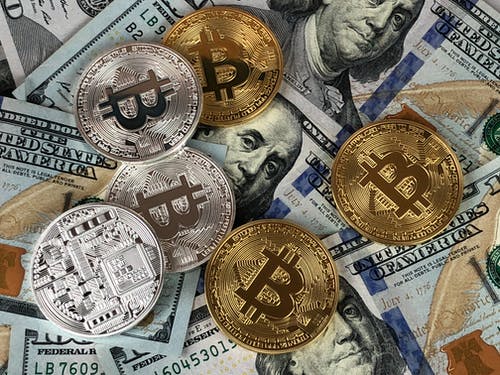RISKS YOU SHOULD KNOW ABOUT WHEN INVESTING IN BITCOIN:
Several Bitcoin backers claiming that digital money is the future. Many of us who back Bitcoin claim that it allows a much quicker, low-fee payment mechanism for transfers across the planet. While it is not protected by any government or central bank, bitcoin can be traded for conventional currencies on bitcoin loopholes and exchange platforms; in particular, its exchange rate against the dollar draws prospective buyers and merchants involved in currency gaming. Admittedly, one of the main factors for the rise of digital currencies such as Bitcoin is that they can serve as a substitute for national fiat money and physical commodities such as gold.
In March 2014, the IRS reported that all digital currencies, such as bitcoins, would be treated as properties rather than money. Profits or damages from bitcoins holding as capital shall be recorded as capital profits or damages while bitcoins kept as stock shall experience normal profits or casualties. The selling of bitcoins that you mined or buy by another person, or the use of bitcoins to reimburse for services and products, are instances of transactions that may be taxed.
Like every other currency, the concept of low acquisition and high sales applies to bitcoins. The most common way to acquire the money is by purchasing on a bitcoin loophole or a platform, but there are several other ways to obtain and possess bitcoins. But one should always consider the risks of trading bitcoin. Give us a chance to clarify some of the major risks of bitcoin trading.
RISKS OF BITCOIN INVESTMENTS:
Although Bitcoin wasn’t constructed as a standard investment strategy (no bonds were authorized), some speculative brokers were attracted to electronic currency after an accelerated acknowledgment in May 2011 and again in November 2013. As a result, many people buy bitcoin for their invested capital rather than as a means of exchange. However, their lack of assured value and intangible nature means that the buying and use of bitcoins entails a range of associated risks. Many investor warnings were released by the Securities and Exchange Commission (SEC), the Financial Industry Regulatory Authority (FINRA), the Consumer Financial Protection Bureau (CFPB), and other organizations.
The idea of virtual currencies is still new and, relative to conventional holdings Bitcoin may not have much of a successful track record or a background of legitimacy to support that claim. Through their growing success, bitcoins have become less revolutionary every day; however, after 10 years, they (like other virtual currencies) stay in the growth process and are continuously developing. “It’s very much the highest-risk, the highest-return investment you might potentially create,” says Barry Silbert, CEO of the Digital Currency Company, which develops and participates in Bitcoin and blockchain businesses.
- BITCOIN REGULATION RISKS:
Investing capital in Bitcoin in all of its various ways is not risk-averse. Bitcoins are an official currency competitor that can be used for black market sales, financial fraud, criminal activity, or tax avoidance. As a consequence, policymakers might attempt to control, limit, or prohibit the use and selling of bitcoins, some of which are already in effect. Others come up with different rules. The lack of standardization rules on bitcoins poses concerns about their durability, liquidity, and rightness.
- BITCOIN SAFETY RISKS:
Any of the consumers who possess and use Bitcoin have not obtained their tokens from mining operations. Instead, they send and receive money and other digital currency on almost any variety of common online markets known as bitcoin exchanges. Bitcoin exchanges are fully automated and, like in any virtual infrastructure, are at risk from hackers, viruses, and technical issues. If a hacker has access to a Bitcoin owner’s hard drive and takes his private encryption key, the robbed Bitcoins may be transferred to another account.
- BITCOIN INSURANCE RISKS:
Several of the assets are protected by the Stock Investor Insurance Company. Standard bank accounts are protected by the Federal Deposit Insurance Corporation (FDIC) up to a certain limit based on the national law. Put simply, Bitcoin exchanges and Bitcoin deposits are not covered by any sort of federal or government scheme. In 2019, the leading broker and exchange market SFOX revealed that it will be able to offer FDIC protection to Bitcoin holders, but only for the part of cash trades.
- BITCOIN MARKET RISK:
As an investment, the prices of Bitcoin can change rapidly. Admittedly, the price of the currency also saw wild price fluctuations throughout its brief lifespan. Owing to high volume purchasing and selling on markets, there is a high exposure to “media.” There is also a lot of rivalries, and while Bitcoin has a massive lead over the thousands of other cryptocurrencies that have arisen, due to its name awareness and venture capital funding, technical advancement in the shape of a stronger electronic coin is still a danger.
CONCLUSION:
If there are profitable reasons why you should invest in bitcoin, there are indeed some risks attach to bitcoin trading as well which an individual should know and understand properly before taking any big step. They can make or break your trading investment and can cause a lot of damage if not properly handled.

